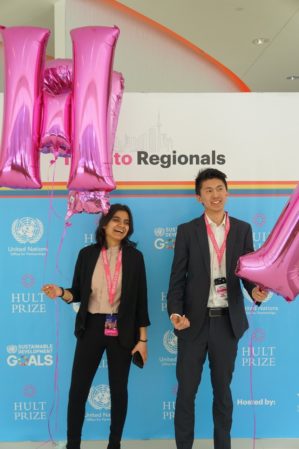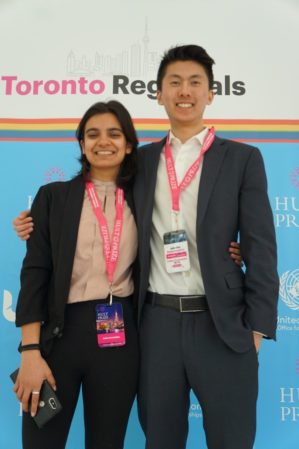When we first learned about the Hult Prize @ UPenn through fellow Jerome Fisher M&Ts, the opportunity was too go to pass up. Working on an entrepreneurial venture geared towards social change, backed by seed-funding and expert mentorship, seemed like a dream come true.
The guiding question that drove us was: How might we create a venture that will provide meaningful work for 10,000 youth within the next decade?
After holding countless brainstorming and think-tank sessions in the GSRs of Huntsman Hall, we zeroed in on a population where youth unemployment is a greater issue than anywhere else within the United Nations – South Africa.

The Problem
With a youth unemployment rate of over 50 percent, South Africa is struggling to prepare its youth for the workforce. Pouring over journals, studies, and op-eds, we identified the key driver of this troubling trend lies in its tertiary education rates. While the South African job market is rapidly moving towards high-skilled labor, South African tertiary education enrollment rates are decreasing, and represent an OECD global minimum. These opposing trends spell trouble. Without the necessary education and training, South African youth are ill-equipped to enter the workforce, and as a result, suffer mass unemployment.
Our Solution
Our idea was designed to make tertiary education in South Africa more accessible to youth. To summarize in broad-strokes, we created a platform that matches companies to prospectivestudents. These companies finance students through college, and in return are paid back through student part-time work with these companies. Depending on student performance, the company can directly hire the student after graduation.
For the student, the implications of this arrangement are three-fold:
- Students now have a debt-free financing option for tertiary education
- Students can gain experience while enrolled in college, gaining valuable training essential for the job market
- Students have a guaranteed job upon graduation
For companies, the implications are two-fold:
- Companies now have a low-risk, low-cost option to screen applicants for employment
- Companies contribute to increasing the skill and experience of the applicant pool, resulting in more competent employees.

Our Journey
Although we did not end up winning the regional finals, the feedback we received from judges, both formally and informally, and through conversations we had with mentors after the competition, were invaluable. Despite our 2019 Hult Prize path hitting a dead-end, the things we learned and experienced have opened up many more doors that lead to new, and better possibilities. We plan to improve on our venture and to continue to create impact and empower other people to do the same.
Lastly, we want to express a huge thank you to the Jerome Fisher M&T Program for making this trip possible. Without support from M&T, we would not have been able to fly to Toronto, compete in the Hult Prize Regional Finals, and gain the experiences that we did. Thank you!
Eric Liu (M&T, ‘21) is studying Computer Science and concentrating in Business Economics and Public Policy. He doesn’t know how these two very distant fields will translate into a career after graduation but hopes to pursue something he truly cares about in the future. He is continuously impressed with the incredible community and network that M&T claims.
Adya Aggarwal (M&T, ‘22) is studying Electrical Engineering and concentrating in Finance. Her favorite thing about M&T is the number of opportunities that M&T students are offered – in terms of the breadth of skills M&T students gain while pursuing two degrees and the close-knit community.


